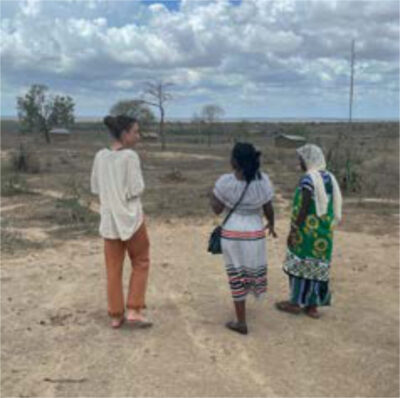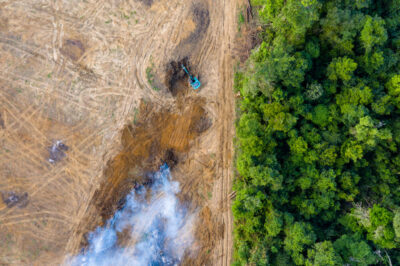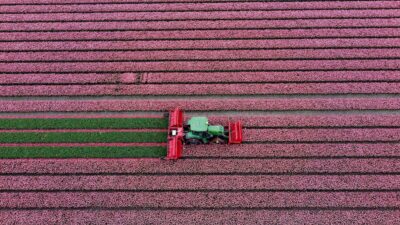Main content
The platform Family Medicine and International Health (Werkgroep Huisartsgeneeskunde en Internationale Gezondheidszorg, WHIG) was founded in 1995 by a group of Dutch Family Physicians with international health care- and research experience, and initially focused on promoting Family Medicine in Low- and Middle-Income countries (LMICs) through collaborations with Universities in Kenya, Malawi and Rwanda. In the Netherlands, the working group helped develop guidelines on Travel Medicine and started a yearly symposium to share knowledge on this topic with Dutch health professionals.
More than 25 years later, this dual focus on the development of Family Medicine training abroad and knowledge exchange on international health in the Netherlands is ever so important. The growing array of complex societal, economic and environmental problems has not only increased the need for strong primary and preventative care training in LMICs; it also increasingly requires Dutch health professionals to learn from international experts as we are confronted with changing health needs due to a more diverse population, workforce shortages, and growing inequity on various levels. Climatic changes will further fuel this need in the years to come. This essay aims to illustrate this need for international knowledge sharing in primary health care approaches through the lens of WHIG’s activities.
Environmental changes and the need for resilient communities to combat chronic disease: what can we learn from the african example?
From its inception, members of the WHIG have been involved in Family Medicine training and research in Kenya, where they have witnessed a changing environment with increased urbanisation and a rise in chronic diseases as a result. In the last two decades, cardiovascular disease and diabetes were rampant in urban slums due to unhealthy circumstances and weak public health regulations. This raised the need for population-based and preventative approaches to healthcare delivery and collaboration with community health workers to help build resilient communities. Innovative approaches in Kenya subsequently became increasingly relevant for the Netherlands. This can be illustrated by the work of WHIG’s member Steven van de Vijver who implemented a large cardiovascular prevention project in urban Kenyan slums focusing on increasing awareness, promoting access to screening and treatment, and improving long-term adherence to prescribed medications. [1] He later adapted it to the local context of Amsterdam Zuid Oost, the Netherlands, where similar health problems existed under vulnerable groups. It became clear that despite the differences in poverty levels, marginalised groups in high-income countries are highly comparable with marginalised people living in African urban slums, as the combination of unhealthy lifestyles, psychological distress, and lack of trust in healthcare providers makes them equally prone to non-communicable diseases. This example shows us how we can learn from health care initiatives in LMICs and use them, in an adapted form, in high-income countries, a process called ‘reverse innovation’. [2]
Recent climatic changes affecting mostly poor rural areas in Kenya further contribute to inequity and urbanisation as it is becoming extremely difficult to live from farming. Kenyan family medicine residents, guided by some of WHIG’s members, showed that rainfall in the last four years (2018-2021) had become increasingly unpredictable in Kilifi, a coastal county in Kenya, resulting in increased livestock diseases, reduced yield from farmland, and decreased food variety. Community members also reported that they heavily relied on unhealthy and cheap foods available in shops during prolonged droughts, as their kitchen gardens had dried up. [3] From this data, it is evident that, similar to the urban slums, a rise in non-communicable diseases in areas affected by climate change, is lurking. To help make the community more resilient to future weather conditions, a collaborative approach was set up whereby men and women in the community came up with ideas to collaborate in the provision of food and irrigation. Moreover, practical nutrition education was provided by community health volunteers and family medicine residents (de Meijer, in process of publication).

Due to global warming, community approaches are becoming increasingly important for countries such as the Netherlands. Although Africa is hit disproportionally hard by climatic changes, it is likely that high-income countries will also suffer from its consequences. Therefore, we should learn from community engagement approaches in Kenya in order to help communities in the Netherlands become more resilient to future changes. The Netherlands is burdened by health workforce shortages and a rise in chronic illnesses leading to an infarcted healthcare system. Recent initiatives help communities to maintain better health, while significantly reducing healthcare costs. An example is a project by David Koetsier, who formerly worked in Zambia where he learned about the importance of integrating public and clinical health approaches; in Amsterdam he set up the kitchen garden project. To stimulate more of these community approaches, WHIG has recently created an opportunity for Dutch family medicine residents to learn from the Kenyan example in an exchange project with the Aga Khan University in Kenya (for more information, see https://whig.nl/stages-copc-in-kenya/).
Prolonged droughts leading to drying up of kitchen gardens, Kilifi County, Kenya.
Environmental changes and forced migration leading to a different spectrum of health problems, especially in vulnerable groups
One of the most devastating consequences of climate change is the displacement of communities who are forced to flee their homes due to extremely high temperatures, flooding or relentless drought. Displaced people often have different health needs such as mental health issues due to forced migration or language and cultural barriers that are often poorly understood by Dutch health professionals. In fact, The Lancet recently published a report stating that in high income countries such as the Netherlands, a disproportionate care law persists, whereby socially disadvantaged people such as migrants, receive more healthcare than average, but of worse quality and insufficient to meet their additional needs. [4]
Many of WHIGs members have travelled to refugee camps in the last decade to help provide primary care in camps that have seen growing numbers over the last years. Their experiences in those camps have helped them to provide better care to asylum seekers and undocumented migrants in the Netherlands. This different spectrum of health problems will probably only increase and therefore have a big influence on our health system. The knowledge and experience of doctors having worked internationally and having been involved in setting-up, maintaining and improving health systems, is therefore of high value. In line with this, WHIG in collaboration with the Knowledge Centre Global Health, recently launched a series of free webinars, accredited for both doctors and nurses, on inclusive global health care topics. Speakers of different backgrounds and nationalities were invited to share their insights on the following topics: Health care for asylum seekers and undocumented people, Community Oriented Primary Care, Tropical Infectious Diseases in Europe and Dermatology of the dark skin. Earlier this year, WHIG’s symposium on Traits, Trauma & Travel invited experts to speak about racial disparities in Dutch healthcare provision and mental problems in refugees.
Digital solutions for international knowledge exchange
Another potential way to improve knowledge exchange and access to health care is via digital health innovations. A multidisciplinary network on Digital Health for All was recently started in Amsterdam with the aim of increasing Universal Health Coverage via digital health. (5) A pilot tool based on digital health records for refugees will be developed and implemented within this network by the end of 2023. Health care for refugees and undocumented migrants is often lacking in continuity and quality, partly due to missing data and information on access and rights to health care. Several WHIG doctors involved in care for migrants and refugees will play an important role in the implementation of the above tool in Amsterdam, and hopefully at a later stage in the rest of the country and continent. Besides offering primary health care for displaced people via mobile health records, digital health tools could also support health care workers working remotely via digital tools like Siilo (a secure medical messenger platform designed for healthcare professionals). In addition, WHIG members have been supporting Family Medicine training and research development online through WHIG’s partner Primafamed (for more information see https://primafamed.sun.ac.za/education-and-training/) and by offering online writing courses to Kenyan students. This is important as the African continent contributes less than 2.6% of the global scientific output while carrying about 25% of the global disease and climate change burden. [6] Online training can help residents to become better authors and increase research outputs from the African continent. [7]
Summary
The challenges and healthcare developments resulting from environmental changes as discussed above make it clear that we can also benefit from healthcare initiatives abroad and from physicians with international healthcare experience. The WHIG has a vital future role in helping develop the knowledge, skills, attitudes and values that enable Family Physicians to help meet current and future global healthcare needs.
Interested in hearing more about WHIG’s activities or becoming a member? Visit https://whig.nl or https://www.linkedin.com/company/whig.
References
- Van de Vijver S, Oti S, Moll van Charante E, et al. Cardiovascular prevention model from Kenyan slums to migrants in the Netherlands. Global Health. 2015;11:11. Published 2015 Mar 7. doi:10.1186/s12992-015-0095-y
- Harris M. Decolonizing healthcare innovation low-cost solutions from low-income countries, Publisher: Routledge, 2023. ISBN: 9781032284958
- Cheruiyot SJ, Kimanthi M, Shabani JS, et al. Climate change poses a threat to nutrition and food security in Kilifi County, Kenya. Afr J Prim Health Care Fam Med. 2022;14(1):e1-e4. Published 2022 Oct 31. doi:10.4102/phcfm.v14i1.3718
- Cookson R, Doran T, Asaria M, Gupta I, Mujica FP. The inverse care law re-examined: a global perspective. Lancet. 2021;397(10276):828-838. doi:10.1016/S0140-6736(21)00243-9
- Van de Vijver S, Tensen P, Asiki G, et al. Digital health for all: How digital health could reduce inequality and increase universal health coverage. Digit Health. 2023;9:20552076231185434. Published 2023 Jul 7. doi:10.1177/20552076231185434
- World Health Organization. The African regional health report 2014. WHO;2014:188. Available from: https://agris.fao.org/agris-search/search.do?recordID=XF2016076661
- Onguka, S., de Meijer, F., & Basnight-Brown, D. M. (2023). Overdue Assignment: A Case Study on Academic Writing Development for Postgraduate Health Professional Trainees in Kenya. Journal of Medical Education and Curricular Development, 10. https://doi.org/10.1177/23821205231206220



















































